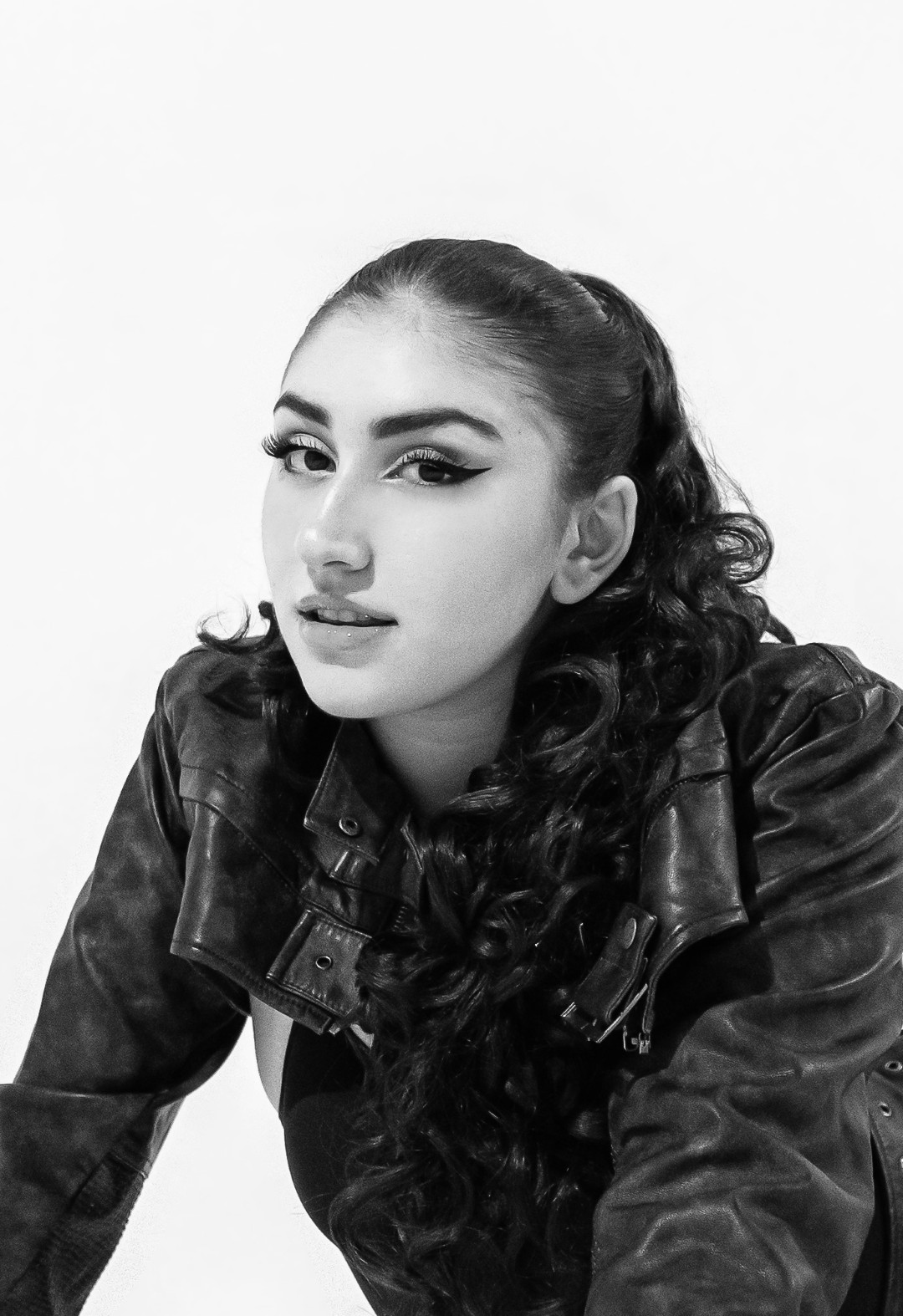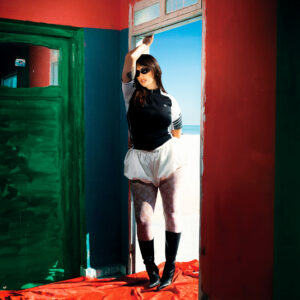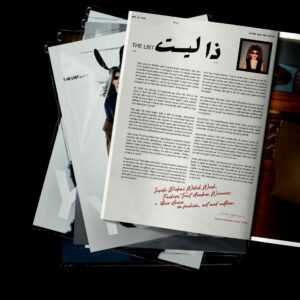Somewhere in East London, the glow of a bathroom mirror has become an unlikely stage. It’s here that Rama—91.5K-strong on TikTok—invites viewers into the exact moment she preps for a night out, her playlist bumping in the background. “Honestly, this is just how I get ready,” she shrugs, recalling the genesis of her signature format.
One evening, her best friend joined the ritual, and Rama, ever the hostess, pressed record. The friend’s wide-eyed reaction to Arabic music felt so genuine — “I absolutely loved seeing her reaction,” Rama laughs — that she knew she’d stumbled on something special.
Rama’s story is as much about geography as it is about groove. Raised in Syria on her mother’s diverse vinyl collection, she arrived in London ears open for new sounds. “I have always had a wide range of music taste (thanks to my mum), but moving to London allowed me to discover newer genres of Arabic music coming from the diaspora.” That diaspora influence—contemporary Beirut electro-pop, Cairo underground rap, Amman’s bedroom R&B—filters into her videos. And when Western viewers stumble upon her page for the first time, she’s right there, playlist cued, acting as a cultural ambassador: “I always want to give them the best first impression of our beautiful culture and music.”
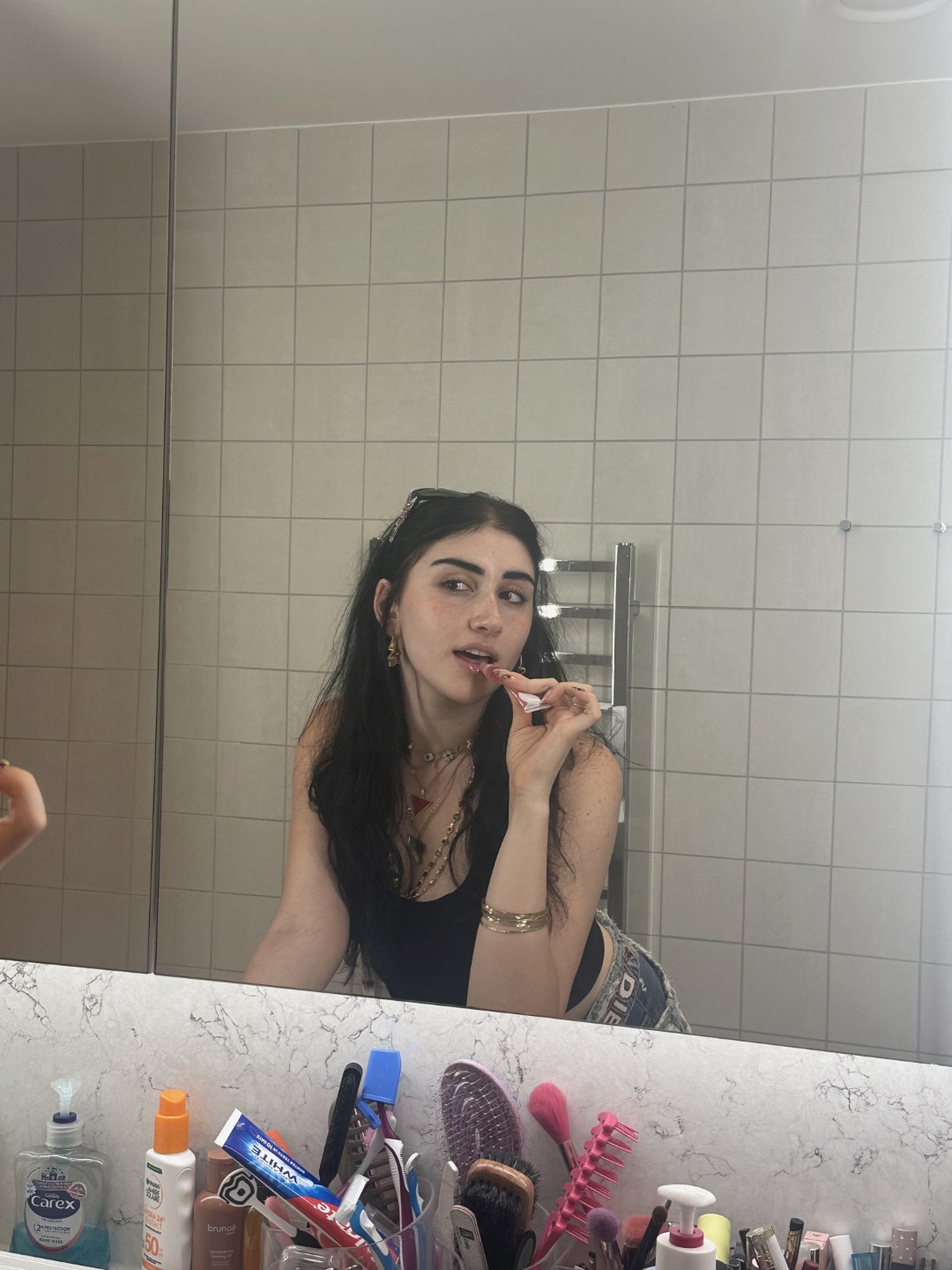
“It is basically all I listen to all day,” she admits referring to Arabic music, “but it definitely always brings a sense of comfort regardless of the genre.” Each morning commences with a WhatsApp share from family back in Syria—sometimes an 80s classic, sometimes a niche underground banger—which she slots into her shuffle. The first song she ever sang? Wadih Al-Safi’s Bitrḥlak Mshwār. “I could literally sing it before I knew how to speak, I swear!”
Her non-Arabic-speaking friends are part of the fun. She’ll drop a chorus—“Arabic songs are soooo dramatic and extra”—and coax them into guessing the meaning. When she finally translates lines comparing a lover’s eyes to the moon or lamenting a heartache so vast it floods the soul, their delight is palpable. “They live for it,” she says.
There are no mood boards here or pre-programmed set lists. “It is honestly spontaneous,” she confesses. “I just put my playlist on shuffle and see what it plays. If it doesn’t suit the vibe I just press skip.” That same impulse drives her YUNG Selects curation: “Good vibes onlyyy!!!”—a dose of adrenaline for anyone about to face a mirror and a vial of highlighter.
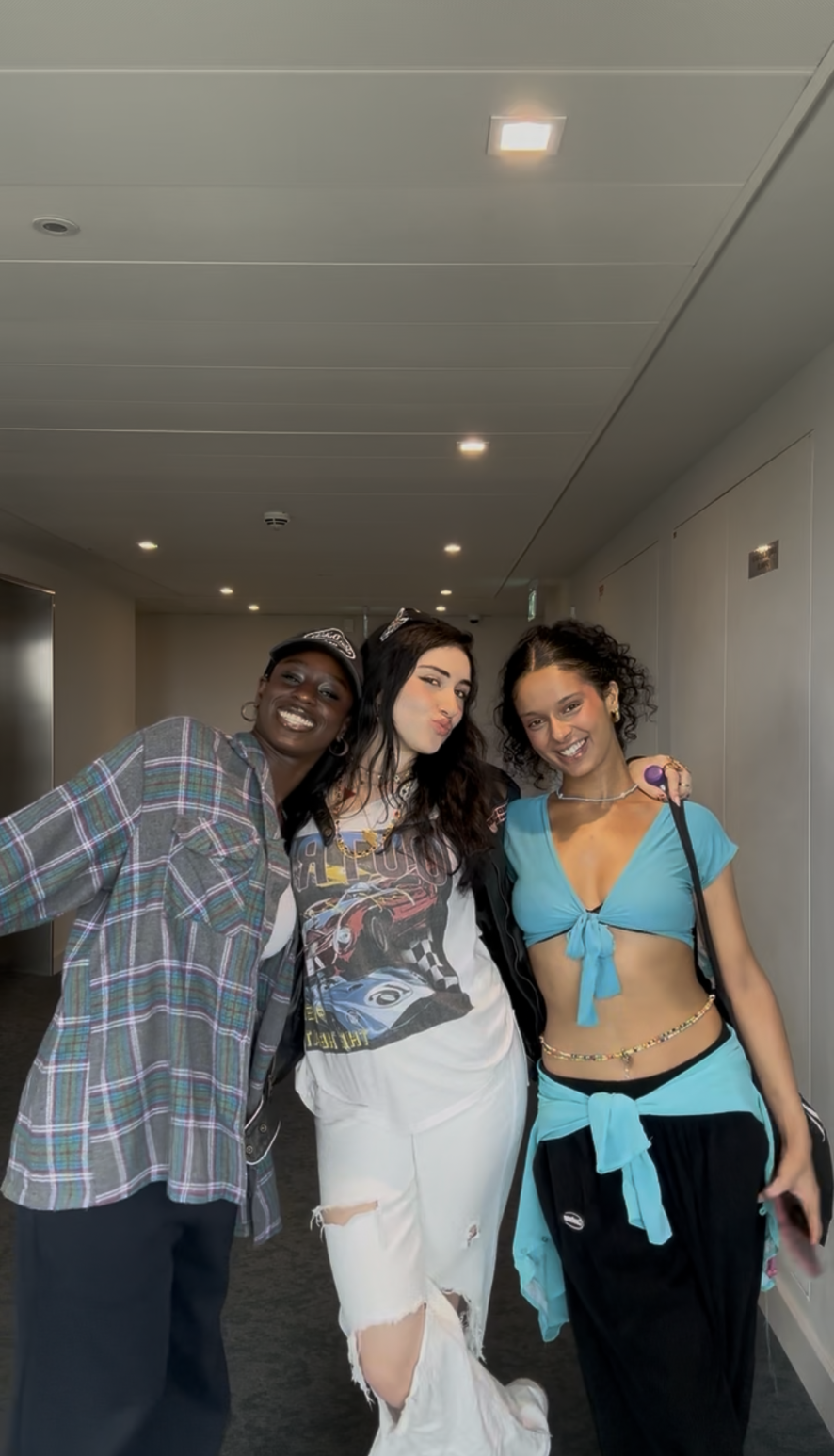
What makes these videos hit isn’t technical polish, but vulnerability. There’s something undeniably intimate about shared laughter mid-contour, eyebrows raised in surprise at a bass drop, hairbrushes paused at the beat. “The intimacy comes from me sharing a part of myself and my childhood and culture to them, and from them accepting it and embracing it in the most beautiful way possible.” Growing up in a female-led household—her mother her best friend, surrounded by sisters and cousins—she learned early that girlhood is woven through these private ceremonies.
Her playlist for YUNG Selects is, in her words, “the perfect get-ready playlist. The perfect hyping myself up playlist.” Expect iconic anthems alongside under-the-radar treasures. “You are going to have to listen to find out,” she teases. What she hopes listeners take away is simple: “Just having a good time!! Maybe adding a new song or two to their own playlists. Getting introduced to a song or artist they might not have heard of before.”
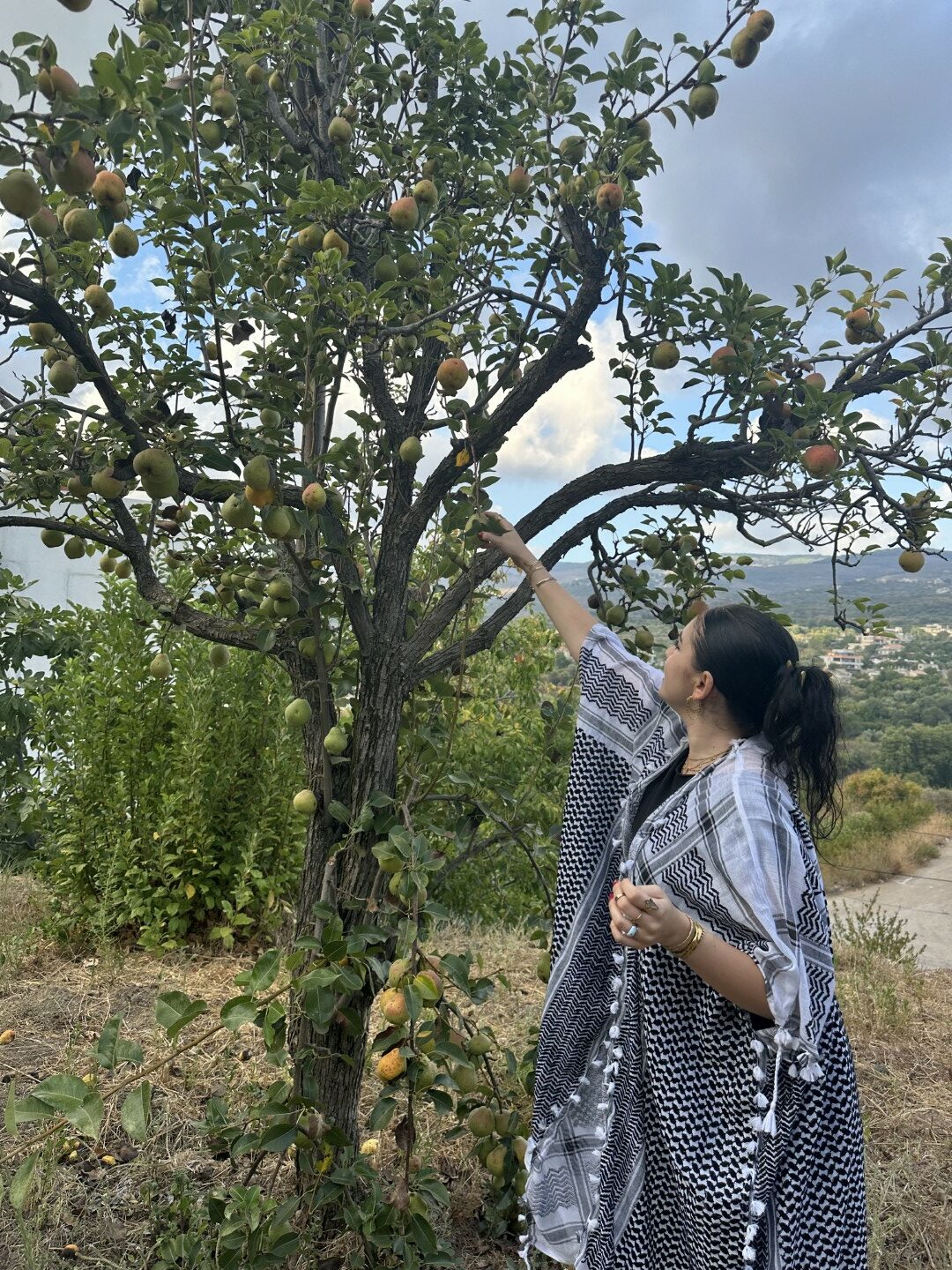
Rama’s influence ripples offline, too. Online, she’s built a community of Arab and non-Arab fans messaging to say her mixes get them through the day—or inspired them to share their own heritage. Offline, her circle spans childhood friends in Damascus, Beirut classmates, UK university roommates, and London’s thriving creative scenes. “I’m so blessed to have an incredible community around me,” she reflects.
Right now, her go-to hype rotation includes Omar Kamal’s Enti Mʿalema, Hamo Bika, and Tul8te’s LA3BALY FE DMAGHY. She’s still waiting for the day when a lyric about a woman’s beauty likened to the moon doesn’t get lost in translation, but until then, she’s content to let her mirror-room stage speak for itself.
For more stories of music from across the region, visit our dedicated pages.
